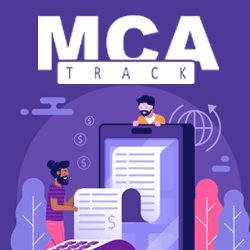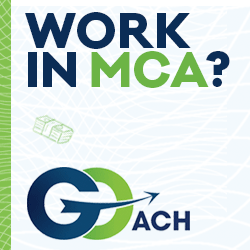Results 1 to 17 of 17
-
04-23-2015, 01:32 PM #1
 Be Careful What You Say
Be Careful What You Say
Hey everyone,
This is just a friendly reminder to anyone new to the industry that is involved in buying future sales, cash flows, or receivables.
There is no debt.
You cannot "pay these off" because there is no debt due. You can buy someone out of their agreement or repurchase sales.
Buyers are not lenders. You are not a direct lender if the only product offered is a purchase of future sales.
Merchants don't "owe" money to you. You bought something of theirs. You own it. It's their job to deliver to you what you own and adhere to the contract. The owe you adherence to the agreement.
Merchants don't "pay you back". They deliver what you bought.
What your contract says is only one part of it. You must use consistent language on the phone, in an email, in a voicemail, on your website, in your advertising, when speaking to journalists, on DailyFunder, everywhere.
I am not a lawyer so consult with one first for concrete legal advice. If you don't understand these basics, you might be at risk.
If the merchant wants to talk in layman's terms and call it a loan with you, correct them. If they don't like or don't understand the language of buying future sales, educate them or don't work with them.Last edited by Sean Cash; 04-23-2015 at 01:38 PM.
-
04-23-2015, 01:44 PM #2jotucker1983Guest
Excellent reminder for when the transaction is structured as an advance. It does get a little tricky though when the transaction is structured as a loan, but you should make sure to specify all of the details to the merchant regardless so everybody is on one accord.
-
04-23-2015, 01:46 PM #3
-
04-23-2015, 02:24 PM #4Senior Member











 Reputation points: 3562
Reputation points: 3562
- Join Date
- Nov 2014
- Posts
- 266
Great points as usual..it is amazing how even the larger MCA companies(that only offer advances no loan products) have reps on the phone calling themselves direct lenders. I can see how it can become tricky. Are you a direct lender? NO I'm a buyer of your receivables.lol Some merchants aren't the sharpest tool in the shed and I can see why it's easier for people to just say they are direct lenders and are lending money.
-
04-23-2015, 02:47 PM #5Senior Member











 Reputation points: 99426
Reputation points: 99426
- Join Date
- Sep 2012
- Location
- New York, NY
- Posts
- 1,780
It's all semantics intended to keep regulators at bay. You can put lipstick on a pig but it's still a pig. This type of jargon confuses merchants who've never done a cash advance before. I keep things simple and say terms like funder, advance amount, payback amount and flat fee for the money. The other jargon is extraneous and overcomplicates what should be a straightforward sales pitch.
-
04-23-2015, 02:51 PM #6
To me, the worst part is hearing reps talk about making great loan offers to the business. If there is ever a federal investigation, I am sure they would like to hear sales calls. If your reps talk about loans, we are all going to be in seriously hot water.
-
04-23-2015, 03:03 PM #7
-
04-23-2015, 03:11 PM #8
-
04-23-2015, 03:18 PM #9
-
04-23-2015, 03:35 PM #10
-
04-23-2015, 04:00 PM #11jotucker1983Guest
From my perspective, if you are a broker you should be (at this point) offering some transactions that are contractually structured as advances, as well as transactions that are contractually structured as loans. If you sell loans and advances, then your marketing can include the word "loan," it's just that once the underwriting is complete and you are closing the merchant, you have to disclose what type of transaction it is.
I usually don't know which product I will place the merchant in until their cashflow and statements are analyzed. Some merchants are best with non-fixed payments (advances) and some are best with fixed payments (loans). Some merchants would get a contractually structured advance, but it would still have a fixed payment arrangement tied to it.
If it's an advance, you are doing a purchase of future merchant processing receivables, which means there's no term associated with that transaction but only a specified holdback amount along with an "estimated" payback completion cycle based on that holdback and the prior 6 months of processing receivables.
But if it's a loan then it's a loan, and you would have to list out the origination fee, disbursement amount, the term, the fixed daily/weekly/monthly payments, as well as how the other costs are calculated.Last edited by jotucker1983; 04-23-2015 at 04:10 PM.
-
04-23-2015, 04:35 PM #12
all fun & games, until the Feds kick in your door and tell everyone to step away form the computers.
-
04-23-2015, 04:41 PM #13
-
04-23-2015, 04:47 PM #14
at the end of the day people need to know what they are actually selling. if it is a loan call it a loan if it is an advance call it an advance. When talking to merchants describe what you are selling properly and if you dont know then you should ask someone and figure it out
John Celifarco
Managing Partner
Horizon Funding Group
3423 Ave S
Brooklyn, NY 11234
T: (347) 773-3990 | F: (718) 795-1990
Linkedin: Profile
Email: john@horizonfundinggroup.com
-
04-27-2015, 11:40 AM #15Senior Member











 Reputation points: 4807
Reputation points: 4807
- Join Date
- Sep 2012
- Posts
- 199
It's gotten pretty muddy out there. Quite a few of the fixed ACH deals out there are written on advance contracts with a specified % but with an added specified daily amount. When I first got into this business back in 2010, the entire premise of an advance not being subject to usury was based almost entirely on the variable repayment and not being a closed end transaction. OnDeck and ARF were pioneers of fixed daily/weekly and took the angle of not being MCA companies to differentiate themselves. Their products were marketed and written specifically as loans.
It's become pretty blurred out there nowadays. The industry was required to move outside of companies who accept credit cards to continue to grow. The first outside of the box product was the variable repayment based on % of total monthly deposits. But that quickly turned into fixed ACH for all...but they aren't loans. Are they?
Some States aren't very worrisome. Like MD for example. Any unsecured business loan above $15,000 isn't subject to usury. The terms can be basically written on a napkin and there is no limit on terms. IOU does a good job at following individual State rules and their contracts are clearly loans. But I see piles of advance style contracts with a simple addition of a fixed specified daily. Is a fixed payment / closed end transaction legally a purchase and sale?
-
04-27-2015, 11:57 AM #16
If there is a funder who keeps login access to the clients account, and can see the total amount being deposited, that funder would be able to take out the specified %. But since most merchants are not interested in that, we as the funder are buying a specified % of your businesses incoming revenues, which me estimate will come out to the numbers provided.
This is my take, I would imagine other people here can give their own interpretation.
-
04-27-2015, 12:28 PM #17
Similar Threads
-
Be careful on DF. You never know...
By FUNd in forum Merchant Cash AdvanceReplies: 4Last Post: 08-21-2014, 05:15 PM



 Reply With Quote
Reply With Quote





















